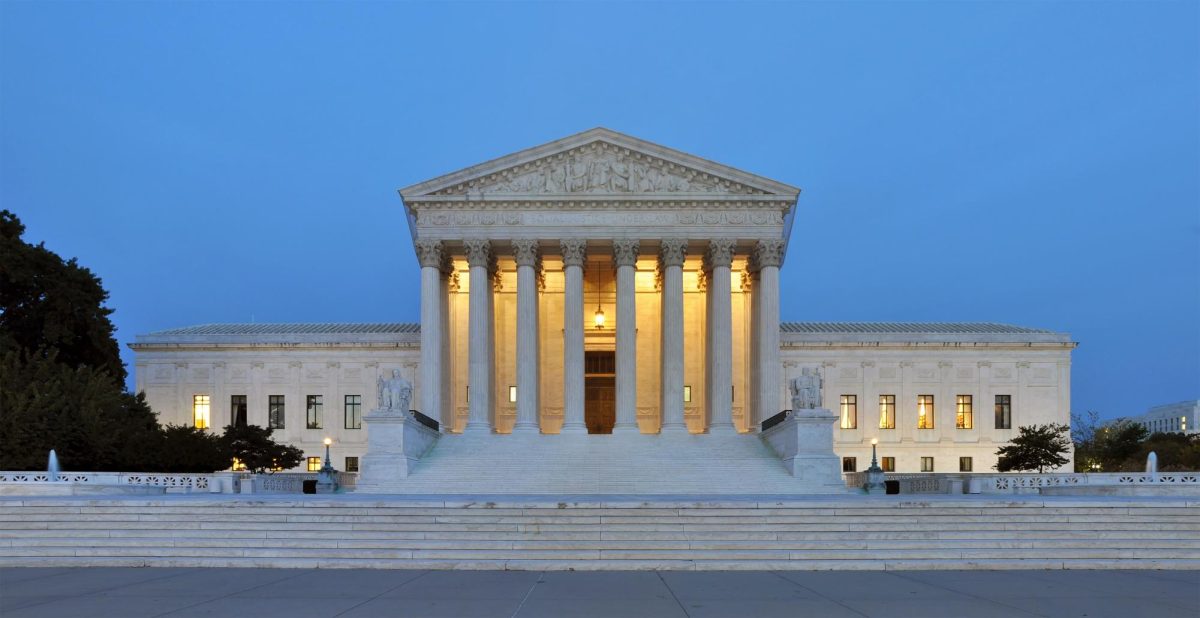Term limits for government officials like House members, Senate members and Supreme Court justices can bring the change Americans need. In the world of politics, change and new perspectives are of the utmost importance. A democracy truly thrives through new ideas and approaches.
Enforcing term limits is crucial to preventing power from becoming concentrated in the hands of a few. At the end of the day, people want a democracy, not an oligarchy. The idea of enforcing term limits for members of Congress and Supreme Court justices touches upon the very essence of democracy.
Society evolves and develops over time, and so should its representatives. By imposing term limits, we prevent the same individuals from holding positions of authority indefinitely, potentially disconnecting them from making decisions based on the changing needs and aspirations of the people they are meant to serve.
The members of the House of Representatives, the Senate and Supreme Court justices do not have a term limit at all and more work needs to be done to enforce limits.
Currently, representatives of the U.S. House have two-year terms and may be re-elected indefinitely. U.S. Senators are elected to six-year terms and may also be re-elected indefinitely, according to U.S. Term Limits. The longest serving member in the House of Representatives was John Dingell who served for 59 years, according to History, Art & Archives.
While having term lengths is a start, the fact that senators and members of the House can be reelected indefinitely shows that more work needs to be done in order to not have the same elected officials until their death.
Supreme Court justices also have life tenure. Under the active/senior justice model, Supreme Court justices retain life tenure, but their tenure is divided into two distinct periods: a phase of active service, lasting 18 years, and a senior phase, lasting for the remainder of a justice’s life term, according to Brennan Center for Justice. The longest serving associate justice was William O. Douglas who served for 36 years, according to the Supreme Court website.
Evan Bernick, professor of law at NIU’s College of Law, explained that enforcing term limits would require an amendment to the Constitution.
“It is largely, although I would not say entirely, uncontroversial that the Constitution itself, by providing that there shall be a Supreme Court and the judges on it shall hold office during good behavior, specifically guarantees that, unless they are impeached, they stay on until they die,” Bernick said. “Although the word ‘life tenure’ is not in the Constitution, overwhelmingly that is how those words are understood.”
Bernick also explained that enforcing term limits is very unlikely.
“In order to get anything done through Congress of any significance, you need not only a majority in both houses, but a Senate supermajority because of the filibuster,” Bernick said. “Any major piece of legislation has to overcome a filibuster, which means that you need at least 60 people to go along with that. That’s very unlikely to happen with any piece of legislation, let alone something that is going to be as controversial as term limits, even though some legislators have expressed support for it.”
While enforcing term limits would require an additional amendment to the Constitution, there is nothing wrong with change. Changes to the Constitution have been made before, whether that be to add amendments or ratify amendments. Why not add the enforcement of term limits to the Constitution?
Having term limits for Supreme Court justices, along with House and Senate members promotes change, diminishes the impact of biased agendas and safeguards against the entrenchment of control. By embracing term limits, we affirm our commitment to a government that evolves with the times and represents the voices of all its citizens.














